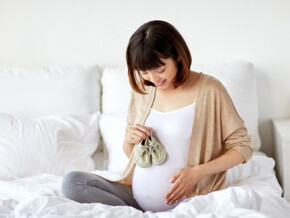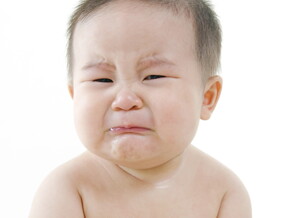
Postpartum Complications: Conditions that Affect You After Birth
After your child is born, your body is on an ongoing quest to recover and adapt into a superhuman that’ll save the world. Or, maybe just so it can take care of your newborn child. Most of the time, you’ll experience changes in your body that are bearable and non-harmful in the long term. However, there are times that your body experiences complications, or health problems after birth.
Postpartum hemorrhage
Among the postpartum complications you may face is postpartum haemorrhage. Postpartum hemorrhage is when there is excessive bleeding after giving birth. It happens when a woman loses more than 500ml or 1000ml within 24 hours of giving birth. It can be due to a few causes, including a poor contraction of the uterus after childbirth, a tear of the uterus or poor blood clotting. The condition is serious, so do call your healthcare professional if you suspect postpartum hemorrhage. However, it is rare; so you shouldn’t stress yourself over the risk of having the condition.
Caesarean wound infection
If you’ve had a caesarean section delivery, you may have a risk of developing certain postpartum complications, namely infections. You should call your healthcare professional if you have severe abdominal pain, redness at the incision site, and discharge from the incision site. This obviously affects only those go through with c-section; we’re sure you’re less likely to have a c-section wound infection if you gave birth naturally.
Postpartum depression
Postpartum complications isn’t just limited to physical health, but mental health. As covered in one of our other articles, postpartum depression isn’t just an emotion. It’s a persistent sadness, anger and guilt that can affect you and the way you care for your child. You may feel guilt and incompetence for caring for your child. You might also have a loss of appetite. Speak to a healthcare professional specializing in postpartum depression, as depression can last up to a year or more if left untreated.
Puerperal infections
Puerperal infections are any bacterial infection of the female reproductive tract. One of the most common infection is of the uterus, which can occur if parts of the placenta are stuck in the uterus instead of separating out. You might notice flu like symptoms, a mild fever and an increased heart rate. Your healthcare professional might recommend antibiotics.
Mastitis
The infection of your breast tissue is known as mastitis. It can occur when a milk duct is blocked, and milk gets trapped in the breast. It may be also due to bacteria entering the breast. The condition results in pain, swelling and redness in your breasts. Some of the symptoms include breast swelling, pain, and feeling ill.
If you suspect you have any of these postpartum complications, you should speak to your healthcare professional for advice. Unless you’re a doctor yourself, the best thing is to leave it to the pros.

















